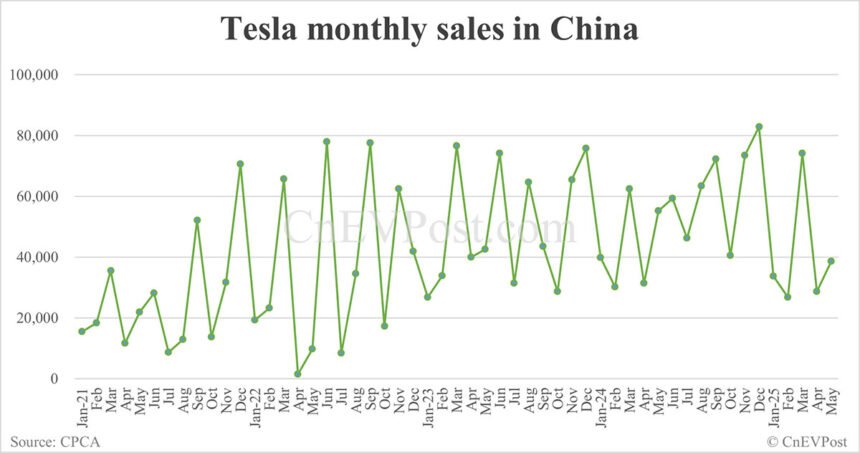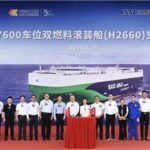Tesla’s retail sales in the Chinese domestic market have seen a decline in the first five months of this year, with a total of 201,926 units sold, marking a 7.82 percent decrease compared to the same period last year. This downward trend has been consistent, with four out of the five months showing a year-on-year decrease in sales volume.
In May alone, Tesla sold 38,588 vehicles in China, a significant drop of 30.11 percent from the previous year. This decline comes despite a 34.31 percent increase from the sales figures in April, indicating a fluctuating market for the electric vehicle (EV) maker. The decrease in sales can be attributed to the price cuts implemented by major domestic automakers like BYD and Chery, which may have influenced consumer preferences in the market.
Tesla’s factory in Shanghai, known as Giga Shanghai, produces the Model 3 sedan and Model Y crossover for both domestic and export markets. In May, the factory exported 23,074 vehicles, showing a 32.93 percent increase from the previous year. However, the overall export volume from January to May experienced a 33.40 percent year-on-year decrease.
Despite the overall decline in Tesla’s sales, China’s new energy vehicle (NEV) market saw growth in May, with retail sales reaching 1,021,000 units, a 28.14 percent increase from the previous year. Within the NEV market, battery electric vehicle (BEV) sales accounted for 607,000 units, showing a 22.42 percent year-on-year increase. Tesla’s market share in China’s NEV market in May was 3.78 percent, a decrease from the previous year but an improvement from April’s figures.
Including exports, Tesla sold a total of 61,662 vehicles in China in May, marking a 15.03 percent decrease from the previous year. This decline has been consistent, with eight consecutive months of year-on-year decline in wholesale sales since October 2024. The Model Y and Model 3 models experienced decreases in wholesale sales volume, with the Model Y selling 39,527 units and the Model 3 selling 22,135 units in May.
Overall, Tesla’s presence in the Chinese market remains significant, despite the challenges faced in retail sales volume. The company continues to navigate the competitive landscape of the EV market in China, adapting to market trends and consumer preferences to maintain its position as a key player in the industry.







